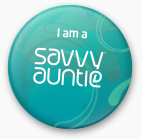Sunday, I talked to a woman who has worked 30 years for New Jersey's Department of Youth and Family Services (DYFS pronounced Dye-fuss). It's the place that monitors child welfare and helps kids who are being abused. I wondered how she kept going, since it is a place that could kill one's soul through all the terrible things you must see. She acknowledged that you do see the worst of people but also the best. And above all, she said the people who last there have a) a calling to do this work; and b) spiritual support. She said they belong to a church, synagogue, ashram, mosque - some community organized around spiritual lines that offers consolation, comfort, and love.
It made so much sense to me, because I have survived devastating circumstances only because of the communities to which I belong. I have grown physically, mentally, spiritually, and emotionally in communities. They may have been communities of two - me and my therapist - or communities of millions - on-line groups like Sparkpeople.com - or communities of shifting numbers - 12-step meetings or my Executive Directors' Roundtable. The number doesn't matter; what matters is that I was not alone. I was accompanied on my path, and accompanied others. I still am part of many communities, because I can't, don't want to, and don't have to travel this life alone. As John Donne said, "no man is an island" and this gal ain't one, either.
Then I thought about the term "self-help." What an unfortunate term, so profoundly unhelpful. It implies that the best way to achieve one's personal, professional, and emotional goals is to do it by yourself. That's what "self-help" means, right? Helping myself?
Don't get me wrong: I love self-help books. I own thousands, and have given away hundreds more. They - and the countless self-help CDs, DVDs, videos, pamphlets, workbooks, films, websites, and articles - contribute to my growth and development. They are useful tools. But that's what they are, tools. They do not constitute community. When was the last time a book returned your late-night phone call? Has a CD ever put its arm around your shoulder? Or a DVD answered your question? What article has asked you questions and then listened intently to your answer, showing excitement at your development or dawning awareness?
Without a community, I would stagnate and die. Self-help tools are not enough. I don't know what else to call them, but would love to figure out how to talk about them as the stepping-off point toward a community of people who also use these tools. There are many communities arising on the Internet now, the Web 2.0 phenomenon. People do gravitate together around common needs and interests. We humans are social creatures who crave community, but don't always know how to build it or participate in it, and often are afraid to risk exposing ourselves. It's so much easier to buy a book and into the illusion that "I can heal myself with these self-help materials." I wish that "self-help" didn't imply that we don't need community in order to grow.
Tuesday, January 27, 2009
Subscribe to:
Post Comments (Atom)







No comments:
Post a Comment